#mount jefferson
Text

Mount Jefferson as seen from Timberline on Mount Hood.
168 notes
·
View notes
Text
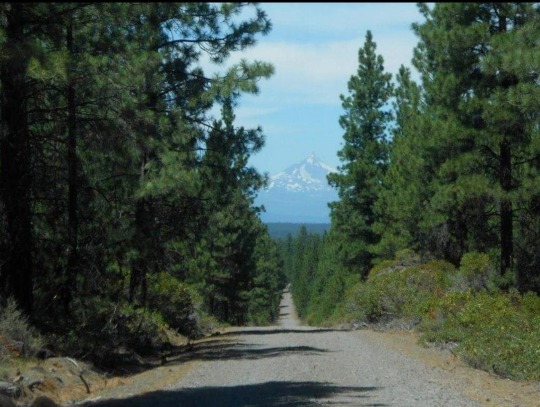
92 notes
·
View notes
Photo
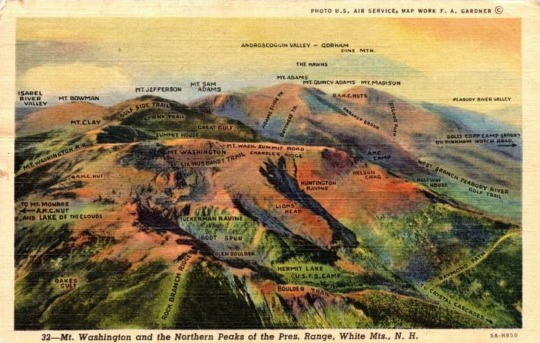
Map of Mount Washington and the Northern Presidential Range. White Mountains of New Hampshire
#hiking#mountain#mountains#mountain climbing#white mountains#new hampshire#franconia#mount washington#presidential range#at#at hiking#at hike#lion's head#mount bowman#mount jefferson#mount sam adams#mount monroe#vintage map#peaks
3 notes
·
View notes
Text
effects of hamilton the musical in society, 2024, colourized
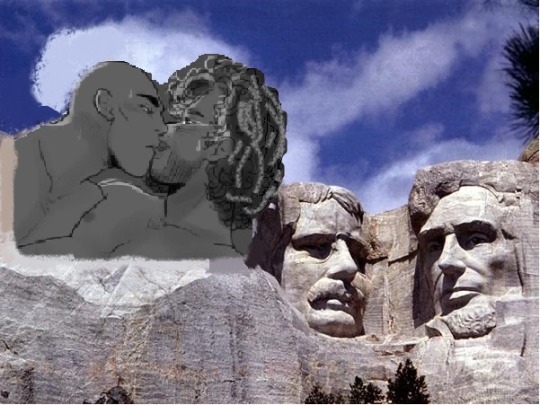
#made in ms paint#amrev#amrev fandom#thomas jefferson#george washington#what's this ship called??? does it even exist???#mount rushmore
100 notes
·
View notes
Text



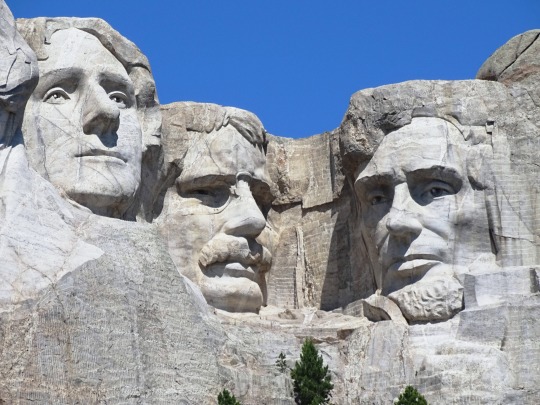
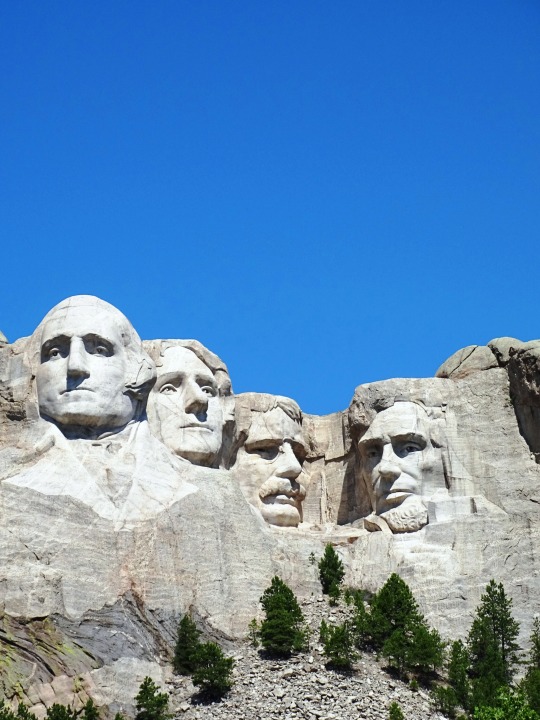

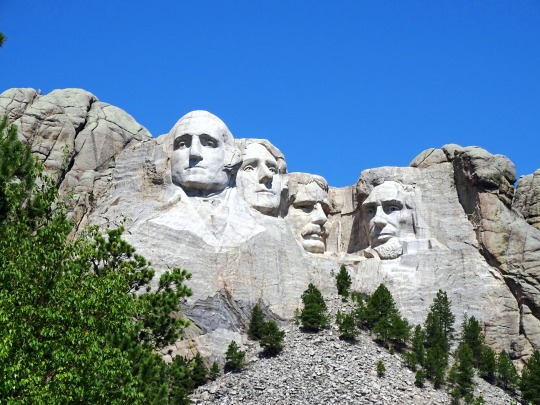

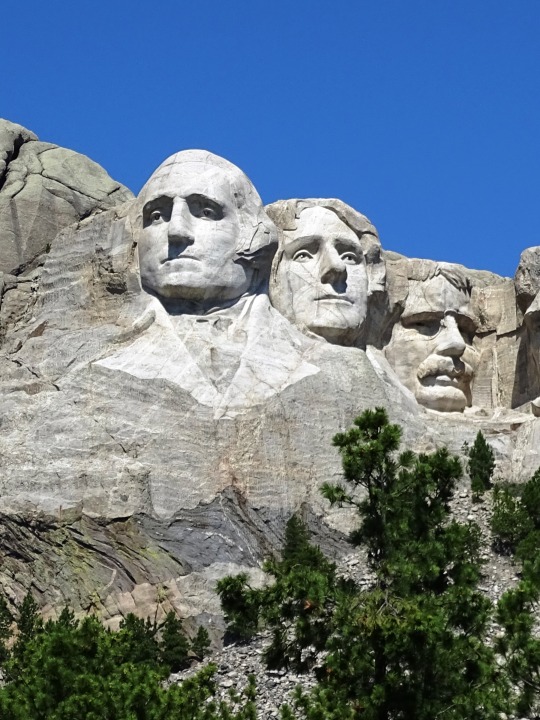


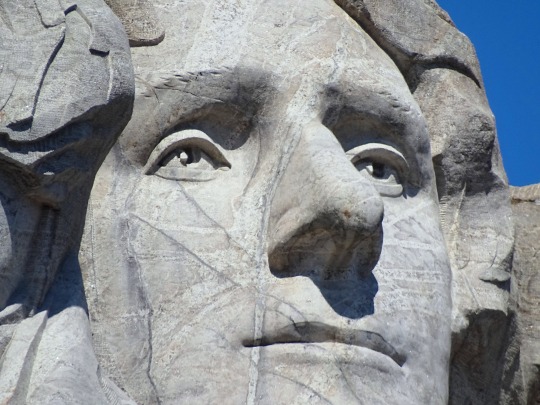
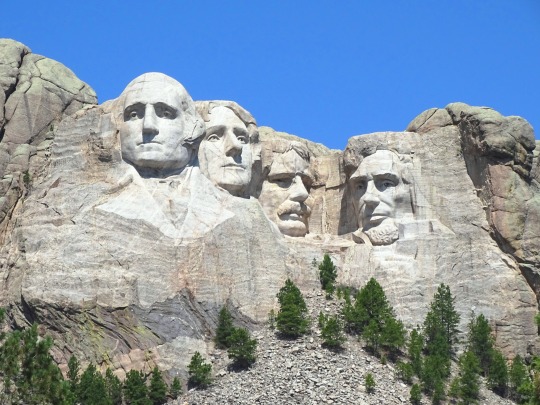
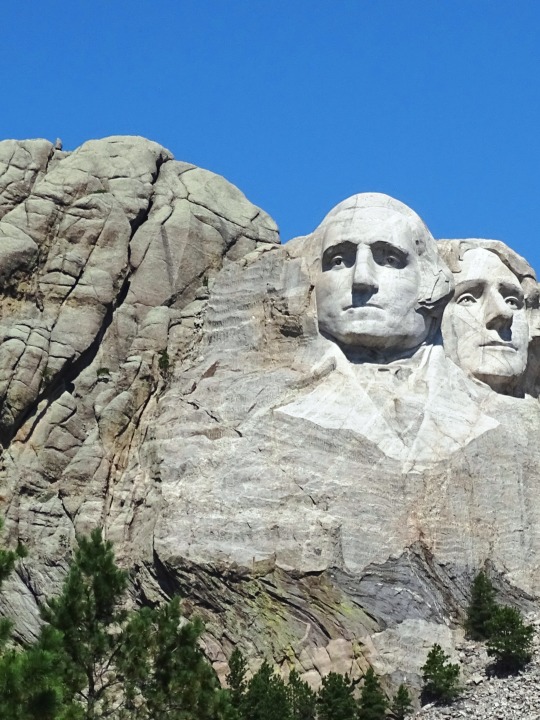
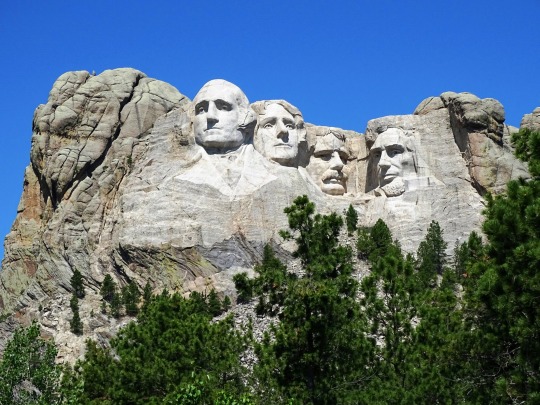
Thomas Jefferson Day
Thomas Jefferson, a founding father of the United States, was born on April 13, 1743. He held many roles and did much during the formative years of the country, including being the main author of the Declaration of Independence and the country’s third president. He wrote his own epitaph, highlighting what he most wanted to be remembered for: “HERE WAS BURIED THOMAS JEFFERSON AUTHOR OF THE DECLARATION OF AMERICAN INDEPENDENCE OF THE STATUTE OF VIRGINIA FOR RELIGIOUS FREEDOM AND FATHER OF THE UNIVERSITY OF VIRGINIA.”
Thomas Jefferson Day is a legal observance, but it is not a public holiday. A joint resolution approved on August 16, 1937, authorized the President of the United States to proclaim April 13 as “Thomas Jefferson’s Birthday” each year. The following year, President Franklin D. Roosevelt issued Presidential Proclamation 2276 to designate the day. Subsequent presidents have made similar proclamations. In Alabama, Thomas Jefferson’s birthday is officially celebrated on Presidents’ Day, along with George Washington’s.
Thomas Jefferson was born at the Shadwell plantation in Albemarle County, Virginia. His mother, Jane Randolph Jefferson, was from a prominent Virginia family, and his father, Peter Jefferson, was a planter and surveyor. After graduating from the College of William and Mary in 1762, he began studying law. As there weren’t official law schools at the time, Jefferson studied under a Virginia attorney. He began his work as a lawyer in 1767.
He married Martha Wayles Skelton on January 1, 1772. They had six children, but only two daughters lived to adulthood. Martha died in 1782 at the age of 33, and Jefferson never remarried. Besides keeping himself busy with politics throughout his life, he had many other interests, including gardening, architecture, music, and reading.
Jefferson was a member of colonial Virginia’s House of Burgesses between 1769 and 1775. He wrote “A Summary View of the Rights of British America” in 1774, which brought him to a wider audience. It said that the British Parliament didn’t have the right to use authority over the colonies. He was then selected to be a delegate to the Second Continental Congress. During this time, a panel of five was chosen to draft the Declaration of Independence. Of the five, which also included John Adams and Benjamin Franklin, Jefferson was chosen to write the draft. It was adopted on July 4, 1776.
In the fall of 1776, Jefferson resigned from the Continental Congress and was elected to the Virginia House of Delegates, which was formerly the House of Burgesses. In the late 1770s, he drafted the Virginia Statute for Religious Freedom. It was a notable forerunner to the First Amendment, and Jefferson thought it was one of his most substantial contributions, being important enough to include in his epitaph. After his time in the Virginia House of Delegates, he was Governor of Virginia from 1779 to 1781.
Following the Revolutionary War, Jefferson was part of Congress, which was known as the Congress of the Confederation at the time. He served from 1783 to 1784, and then became Minister to France in 1785, taking over the position that Benjamin Franklin had held. Because he was overseas, he was not able to attend the Constitutional Convention in 1787.
In the fall of 1789, Thomas Jefferson returned to America and became the first secretary of state. He helped found the Democratic-Republican Party, which opposed Alexander Hamilton’s Federalist Party, a party which wanted a strong central government with strong powers over the economy. Jefferson believed in a federal government with a limited role and believed in strong state and local governments.
He ran for president in 1796 and received the largest amount of votes after John Adams, so he became vice president. He ran against Adams again in 1800, and this time beat him. But his electoral vote count tied that of his running mate, Aaron Burr, and it was up to the House of Representatives to declare Jefferson as president. Because of this, the Twelfth Amendment, which stipulated separate voting for president and vice president, was ratified in 1804.
Jefferson served two terms as president and was in office from 1801 to 1809. During his first term, in 1803, he helped orchestrate the Louisiana Purchase, in which the size of the United States doubled with the purchase of land for $15 million from France. Jefferson sent Meriwether Lewis and William Clark on an expedition, known as the Corps of Discovery, to explore the new land. With this trip, information was gathered about geography, plant and animal life, and American Indian tribes. During his second term, which he secured with over 70% of the popular vote, Jefferson worked to keep the country out of the Napoleonic Wars. He implemented the Embargo of 1807 after merchant ships were getting harassed by France and Britain. It was an unpopular move, though, as it shut down American trade and hurt the economy; it was repealed in 1809. Jefferson did not run for a third term in 1808.
After his presidency, Jefferson retired to his home, Monticello. “Monticello” means “little mountain” in Italian. Indeed the home is located on a small mountain, on the edge of the Shadwell property where Jefferson was born. He had begun clearing the area for a home in 1768. He designed the home and gardens himself, and he continually worked on the house throughout his life. Art and gadgets filled the rooms, and he kept records of everything that went on at the plantation.
During his retirement years, he also helped found the University of Virginia. He helped design both its buildings and its curriculum. He also made sure it wasn’t a religious school and that there wasn’t a religious litmus test in order to attend it.
In 1815, he sold his 6,700 volume personal library to Congress, to replace the books that had been destroyed by the British in the War of 1812, when they burned the Capitol, which housed the Library of Congress at the time. Jefferson’s books became the foundation of what became the Library of Congress’s new library.
Although Jefferson is revered as one of the founding fathers, he is not a man without contradictions and shortcomings. He was a promoter of liberty and wrote “all men are created equal,” but was a slave owner throughout his whole life, during which he owned a total of about 600 slaves. He believed blacks were inferior humans and didn’t think coexistence would be possible if they were free. And although he never remarried after the loss of his beloved wife, Martha, he went on to father more children with one of his slaves, Sally Hemings. Some of the slaves that were in his bloodline were freed after his death, but most of his slaves were sold.
Thomas Jefferson passed away at Monticello at the age of 83, on July 4, 1826, on the 50th anniversary of the adoption of the Declaration of Independence. As if the date of his death wasn’t ironic enough, fellow founding father John Adams died on the same day. Thomas Jefferson died first, but Adams did not know that Jefferson had died, and his last words were “Thomas Jefferson survives.” Jefferson was buried at Monticello. Monticello was sold off following his death to pay debts, but a nonprofit organization acquired it in the twentieth century and it was opened to the public in 1954.
Source
#Thomas Jefferson Day#13 April 1743#anniversary#US history#born#birthday#Mount Rushmore National Memorial#controversial memorial#USA#controversy#Black Hills#South Dakota#Gutzon Borglum#summer 2019#original photography#tourist attraction#landmark#landscape#nature#NationalThomasJeffersonDay#Thomas Jefferson#US President#Teddy Roosevelt#Theodore Roosevelt#Abraham Lincoln#George Washington#North Central Region#Great Plains#travel#vacation
8 notes
·
View notes
Text
Rushmore
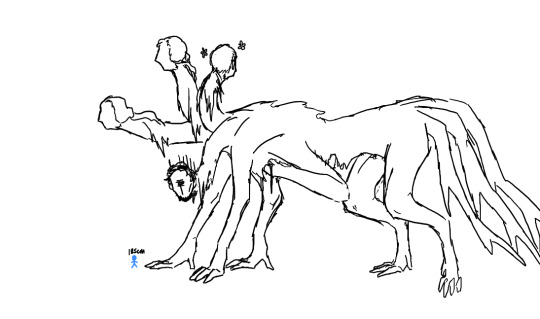
Inspired by King(Kevin) Ghidorah.
Washington and Jefferson: Observation
Roosevelt: Gets distracted easily.
Lincoln: Holding the heart in its place and is dying.
That blue little guy is a human for comparison, he is about 185 cm/6.07 feet tall
(Gahh, the concept is still blurry, is it an organism or a mecha or both?!)
#mount rushmore#mt rushmore#abraham lincoln#theodore roosevelt#thomas jefferson#george washington#art
10 notes
·
View notes
Text
swifttok can be the bad place but i’m glad i went scrolling recently because receiving this text from my brother without context would be very confusing

#for context someone wanted to start a rumor that taylor was replacing thomas jefferson on mount rushmore#and people ran with it#have made fake screen caps of news stories it’s kinda hilarious
7 notes
·
View notes
Text

3 notes
·
View notes
Text
The way I’m cackling
3 notes
·
View notes
Text
i can’t believe they’re replacing thomas jefferson with taylor swift on mount rushmore
3 notes
·
View notes
Text
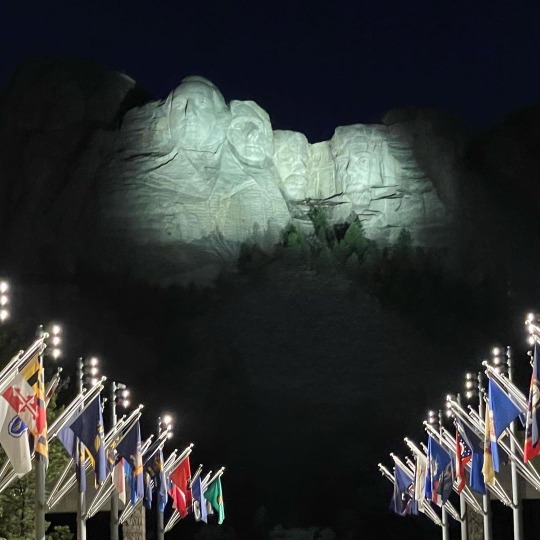
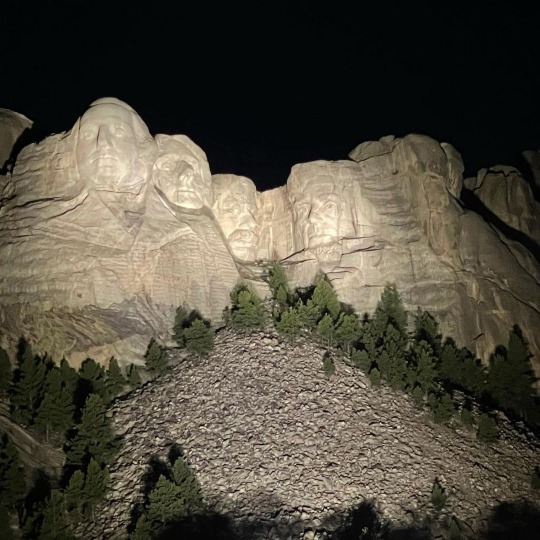
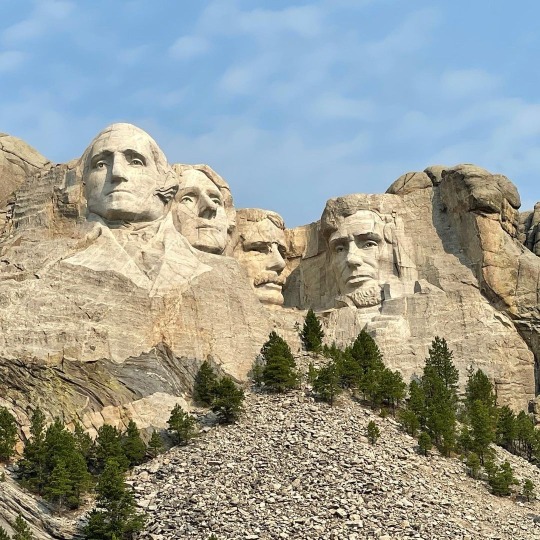
Mount Rushmore approximately 60 ft high depicting four of the U.S. presidents: George Washington, Thomas Jefferson, Theodore Roosevelt and Abraham Lincoln; it was completed in 1941 under the leadership of Gutzon Borglum and his son Lincoln.
#abraham lincoln#thomas jefferson#george washington#places to visit#places to go#travel#travellers#adventure#exploration#explore#traveling#theodore roosevelt#mount rushmore#history#us presidents
2 notes
·
View notes
Text
Not So Flimsy Reed
Not So Flimsy Reed
I have a fair bit of Lou Reed in my collections either as mp3 or as stand-alone beginning with his Velvet Underground years. On the shelves are: Velvet Underground: Underground+Nico (1967); White Light/White Heat (1968) (super deluxe: 2013); Live MCMXCIII (1993). His solo work: Lou Reed (June 1972); Transformer (Nov 1972); Berlin (1973); R’n’R Animal ( Feb.1974); Sally Can’t Dance (1974); Metal…
View On WordPress
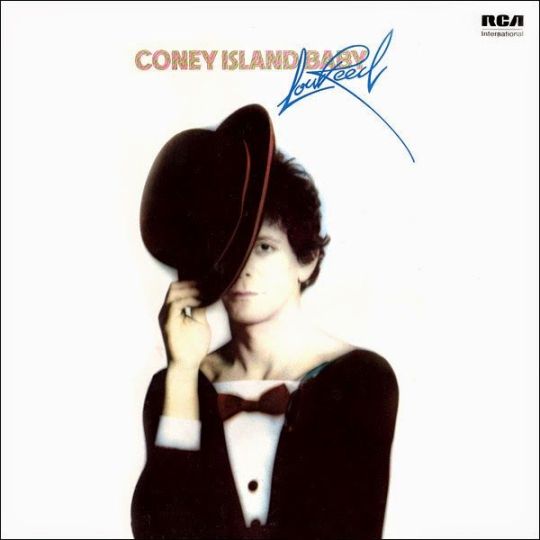

#AC Reed#am writing#Brian Ferry#Jefferson Airplane#Jimi Hendrix#Jimmy Reed#King Kruel#Lou Reed#Lulu#Mount Kimbie#music#Ontario#photographs#review#The Factory#Toronto#Ultravox#Velvet Underground#Wymond Miles
5 notes
·
View notes
Text
USA Presidents (Part 1)


Mount Rushmore American Presidents Sculpture
USA presidents Part 1. The men who made America. The most powerful figures in the world.
President's Day, sometimes called Washington's Birthday, is an official holiday observed in the United States of America on the birth of George Washington, the country's first president. This year Presidents Day is celebrated on Monday, February 19, 2024.
Associate yourself with men of good quality if you esteem your own reputation; for 'tis better to be alone than in bad company.
George Washington
When angry, count ten, before you speak; if very angry, a hundred.
Thomas Jefferson
The advancement and diffusion of knowledge is the only guardian of true liberty.
James Madison
If your actions inspire others to dream more, learn more, do more and become more, you are a leader.
John Quincy Adams
An honorable defeat is better than a dishonorable victory.
Millard Fillmore
Always bear in mind that your own resolution to succeed is more important than any other one thing.
Abraham Lincoln
I pity the man who wants a coat so cheap that the man or woman who produces the cloth will starve in the process.
Benjamin Harrison
Our differences are policies; our agreements, principles.
William McKinley
After the collapse of the USSR and the end of the Cold War, the President of the United States of America is undoubtedly the most powerful figure in the world. In fact he is the head of the Government of the most important economic and financial power and the Commander in Chief of the most formidable army in the world. That is why every four years the American presidential elections are followed with such great interest all over the world. Washington, the capital city of the USA, derives its name from the first President of the nation. It lies in the District of Columbia (DC) on the Potomac River half way between the North and the South. Its foundation was due mainly to President Thomas Jefferson.
Presidents who made America
On the rocky cliff-face of Mount Rushmore, South Dakota, are to be seen four colossal portrait sculptures. They are the heads of four great American Presidents: Washington, Jefferson, Lincoln and Theodore Roosvelt.
George Washington (1789-1796)
He was the commander-in-chief of the American Army during the War of Indipendence against Britain. After the Victory of the former 13 British Colonies (1783) he became the first President of the US.
Before the United States won independence from British rule, George Washington was a farmer in the colony of Virginia. He served as a military as a military leader in the Revolutionary War. The colonists trusted him because he did not want power for himself. He wanted all the states and the people to work together as one. He wanted the government to serve the people well. Washington said that power should belong to institutions, not to men. He also said that people could understand the U.S. Constitution in many ways, not just one. He did not think that the United States should have strong ties with other countries. George Washington was the First President of the United States from 1789 to 1796. He is often called "the Father of Our Country!"
Washington's Birthday, also known as Presidents' Day, is a federal holiday held on the third Monday of February. The day honors presidents of the United States, including George Washington, the USA's first president. The day commemorates past presidents of the USA. Washington's Birthday is sometimes known as Presidents' Day. This is because while most states have adopted Washington's Birthday, some states officially celebrate Presidents' Day. Some states pay particular attention to Abraham Lincoln, as his birthday was also in mid-February. In the weeks or days leading up to the holiday, schools often organize events and lessons for students about the presidents of the United States and George Washington in particular. It is a popular day for stores to start their sales. The US federal holiday is on the third Monday of February each year, but records show that George Washington's birthday is on February 22. Many businesses are open as usual and many stores hold sales on Washington's Birthday. Many delivery services, except for the Post Office, have a regular service and many, but not all, public transit systems operate on regular schedules. Some schools close for the whole week for a mid-winter recess. According to some government sources, Indiana observes the Washington's birthday holiday in December.
John Adams (1797-1801)
The Adams' were the first residents of the White House. They moved in in November 1800 while the paint was still wet. Mrs. Adams would hang her laundry in the East Room to dry. Adams was one of three presidents not to attend the inauguration of his successor. Not only was Adams disappointed in losing to tiny U.S. flag Jefferson, he was also grieving the death of his son Charles. Adams was the great-great-grandson of John and Priscilla Alden, Pilgrims who landed at Plymouth Rock in 1620. The only presidents to sign the Declaration of Independence Adams and tiny U.S. flag Jefferson both died on its 50th anniversary, July 4, 1826. Adams' dying words were "Thomas Jefferson survives". Jefferson, however, had passed on a few hours earlier. In 1800, U.S. capital relocated to Washington, D.C. from Philadelphia and the Congress established the Library of Congress.

President's Day
Thomas Jefferson (1801-1809)
He could do many things. As a young man, he was a farmer and a lawyer in Virginia. He was also a scientist an inventor, a philosopher; and an architect He designed his own home, called Monticello.
He could speak French, Italian, Spanish, Latin, and Greek. Many of Jefferson's ideas became basic principles of the government of the United States. For example, he believed that all men are created equal, are born the same and should receive the same treatment under the law. He also said that power must come from "the consent of the governed" (the voters, not the leaders).
He wanted free elections, a free press and free speech. Thomas Jefferson held many important government positions. He was Ambassador to France, Secretary of State (under George Washington), Vice President (under John Adams), and the third Prwsidwsm of the United States, from 1801 to 1809. As President, Jefferson bought the huge Louisiana Territory from France.
In 1776 he helped to draw up the famous "Declaration of Independence" which stated that Britain's American colonies were "of right free and independent States". His name is also linked to the foundation of Washington City as the capital of the United States of America.
Abraham Lincoln (1861-1865)
He was the president of the Civil War (1860-1865) and of the abolition of slavery. At that time the Southern States still kept black slaves. Lincoln spoke out strongly against slavery. As a result, a Civil War broke out between the Northern and Southern States. The North won the war. The two sides were reunited as a nation and slavery was abolished. He grew up in Kentucky in a log cabin. He couldn't go to school, so he taught himself. He became a lawyer. Friends called him "Honest Abe" As a delegate from Illinois, he served in Congress from 1847 to 1849. Lincoln was against slavery and gave some famous speeches about his ideas when he was running for the Senate. In 1861 Abraham Lincoln became the sixteenth President of the United States. He wanted the states of the Union to work together as one country, but he had to lead the North against the South in the Civil War. Some people thought that Lincoln was too strong as President because he used unconstitutional powers. President Lincoln freed the slaves with the Emancipation Proclamation. He had a plan to bring the South back into the Union after the Civil War, but he couldn't carry it out because he was assassinated. In 1865 an actor named John Wilkes Booth shot Abraham Lincoln.
Theodore Roosevelt Jr. (1858-1919)
often referred to as Teddy or by his initials, T. R., was an American politician, statesman, conservationist, naturalist, and writer who served as the 26th president of the United States from 1901 to 1909. He previously held various positions in New York politics, rising up the ranks to serve as the state's 33rd governor for two years. He later served as the 25th vice president under president William McKinley for six months in 1901, assuming the presidency after McKinley's assassination. As president, Roosevelt emerged as a leader of the Republican Party and became a driving force for anti-trust and Progressive policies.
Harry S. Truman (1884-1972)
was the 33rd president of the United States, serving from 1945 to 1953. A member of the Democratic Party, he previously served as a United States senator from Missouri from 1935 to 1945 and briefly as the 34th vice president in 1945 under Franklin D. Roosevelt. Assuming the presidency after Roosevelt's death, Truman implemented the Marshall Plan in the wake of World War II to rebuild the economy of Western Europe and established both the Truman Doctrine and NATO to contain the expansion of Soviet communism. He proposed numerous liberal domestic reforms, but few were enacted by the conservative coalition that dominated the Congress.
Franklin Delano Roosevelt (1882-1945)
was 50 when he became President in 1932, during the worst period of the Depression. He did not have the look of a leader: thin, stricken by polio, bound to a wheelchair... Yet he proved one of the greatest presidents ever. He launched the New Deal, that is a sort of alliance between all the social classes and ethnic groups to help the country regains its standards of production and distribute wealth with more justice. In 1936, 1940 and 1944 he was re-elected, but he died just a few weeks before the end of the war. He represents some of America's greatest virtues: a strong will, able to go beyond the limits of paralysis; the ability of working harder and harder to reach the objective; a certain stubborness when he was convinced that he was right (which caused him some problems with Congress and the Supreme Court...).
The American people thanked him in a special way: FDR was the first and only president to be re-elected after the second term!
Dwight David Eisenhower (1890-1969)
nicknamed Ike, was an American military officer and statesman who served as the 34th president of the United States from 1953 to 1961. During World War II, he was Supreme Commander of the Allied Expeditionary Force in Europe and achieved the five-star rank as General of the Army. Eisenhower planned and supervised two of the most consequential military campaigns of World War II: Operation Torch in the North Africa campaign in 1942–1943 and the invasion of Normandy in 1944. After the war, Eisenhower reverted to his regular rank of captain and a few days later was promoted to major, a rank he held for 16 years. Throughout his presidency, Eisenhower adhered to a political philosophy of dynamic conservatism. He described himself as a "progressive conservative" and used terms such as "progressive moderate" and "dynamic conservatism" to describe his approach. He continued all the major New Deal programs still in operation, especially Social Security. He expanded its programs and rolled them into the new Cabinet-level agency of the Department of Health, Education and Welfare, while extending benefits to an additional ten million workers. He implemented racial integration in the Armed Services in two years, which had not been completed under Truman.
American Presidents Part 2
American Presidents Quiz
Full list of presidents of the United States
Here are the major U.S. holidays. In some cases, businesses, government offices, and schools will be closed, and also the International Days list.
New Year’s Eve/New Year’s Day
MLK Jr. Day
President’s Day
Valentine’s Day
St. Patrick’s Day
Easter/Spring Break
Mother’s Day
Memorial Day
Father’s Day
4th of July
Labor Day
Halloween
Thanksgiving
Christmas Eve
Christmas Day
International Days List
Read the full article
#Abraham#Adams#America#Commander#Day#Delano#Franklin#George#government#Jefferson#John#Lincoln#Mount#president#President'sDay#presidents#Roosevelt#Rushmore#Thomas#Washington
1 note
·
View note
Text
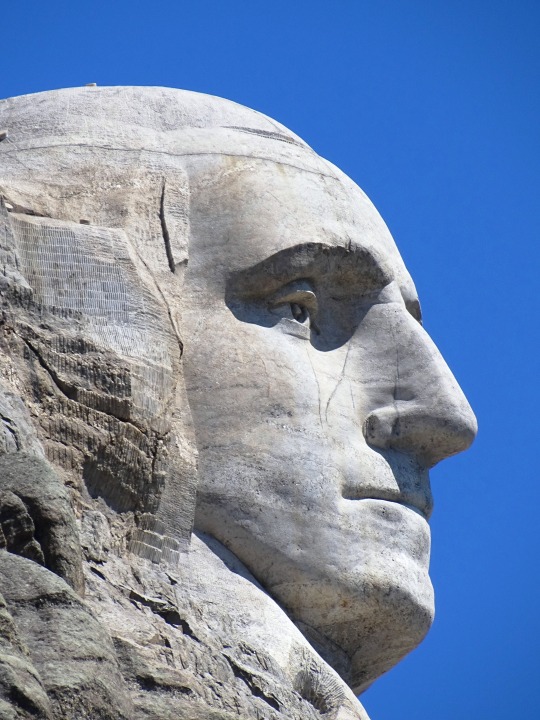
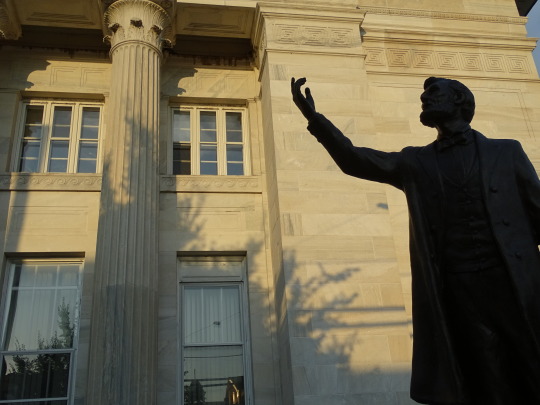
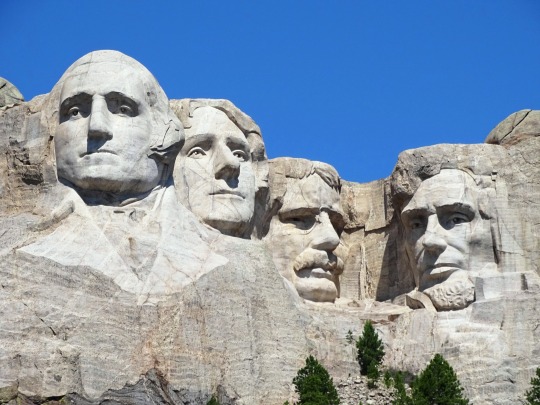

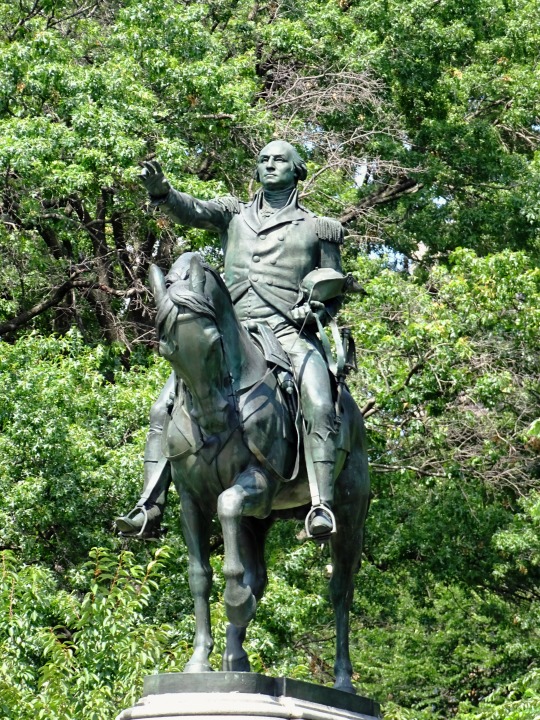

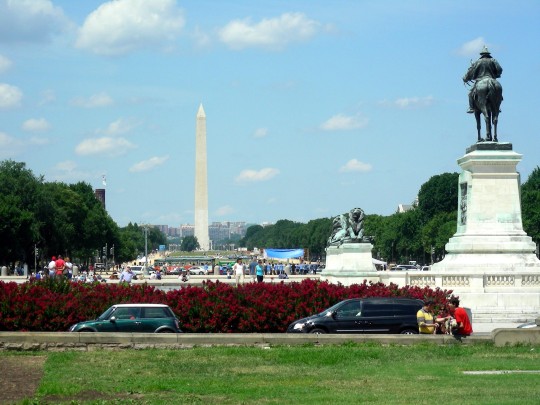


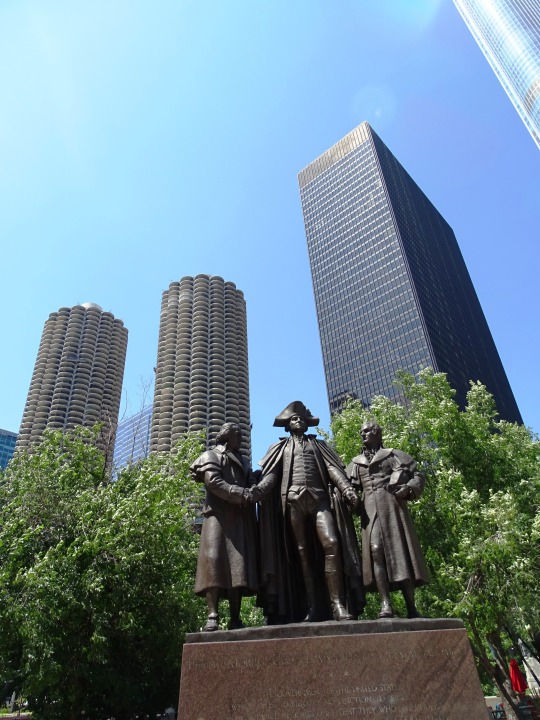
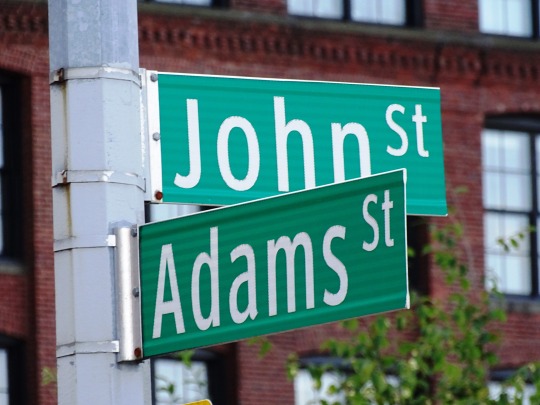
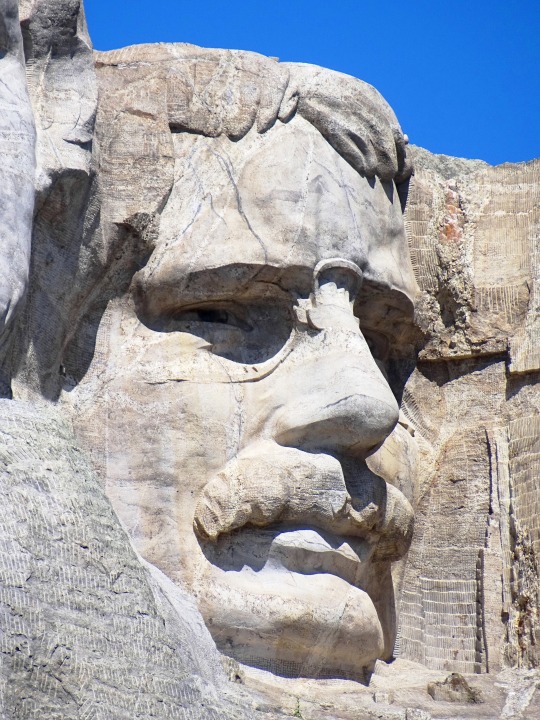

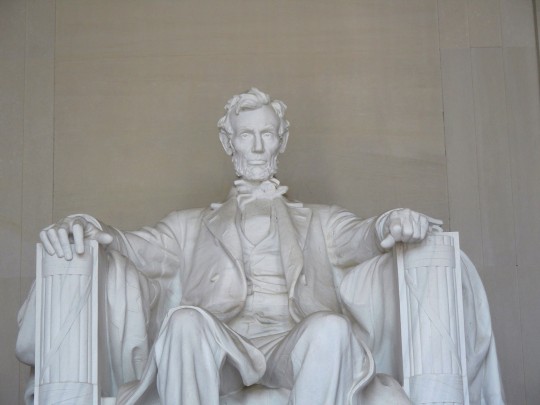
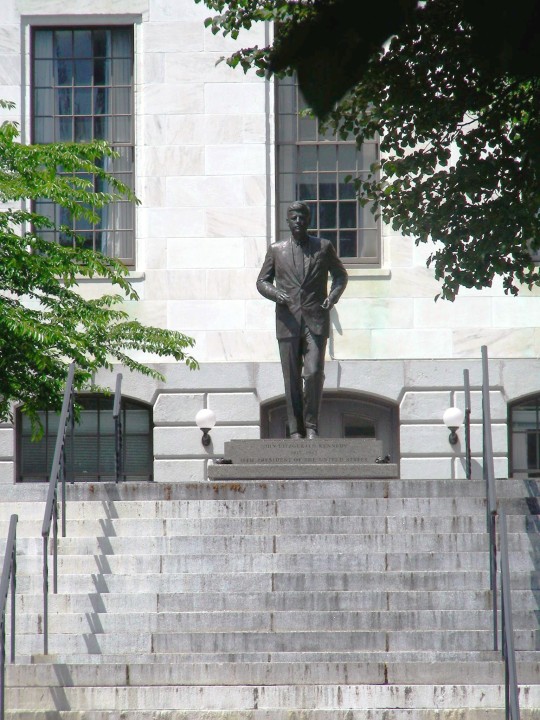
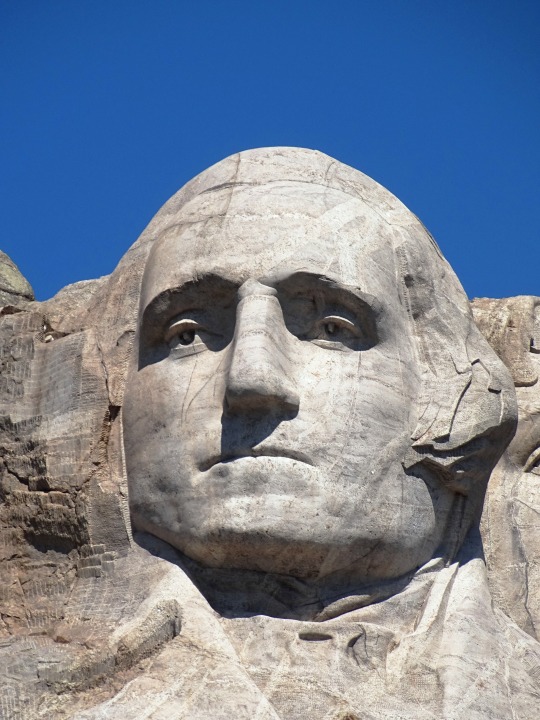

Presidents’ Day
Celebrated each year, on the third Monday in February, Presidents’ Day is a federal holiday to pay tribute to the presidents of the United States, including George Washington, the country’s first president, and Abraham Lincoln, who served during the Civil War. The holiday was originally established to honor Washington, but over time it has come to be a day to recognize all of the nation’s presidents. It is a day when many businesses and government offices are closed and people have the day off from work or school. Some people celebrate Presidents’ Day by participating in parades or other events, while others use it as a time to relax and spend time with family and friends.
History of Presidents’ Day
Presidents’ Day has its roots in the celebration of George Washington’s birthday, which has been observed as a national holiday in the United States since the late 18th century. Washington was born on February 22, 1732, and his birthday was first officially recognized as a national holiday by an act of Congress in 1879. The holiday was originally called “Washington’s Birthday,” and it was observed on February 22 each year.
In the 20th century, Congress passed the Uniform Monday Holiday Act, which was designed to create more three-day weekends for the nation’s workers by moving several holidays to Mondays. As part of this act, the holiday honoring Washington was moved to the third Monday in February and was renamed “Presidents’ Day” to recognize not just Washington, but all of the presidents of the United States. The holiday has been observed on the third Monday in February since 1971.
Presidents’ Day is not only a time to honor US presidents, but also a time to reflect on the important role that they have played in shaping the nation’s history.
How to Celebrate Presidents’ Day
There are many ways to celebrate Presidents’ Day. Some people choose to honor the holiday by taking part in parades or other events that are held in honor of the presidents. Others use the day as an opportunity to learn more about the presidents and their contributions to the country. Here are a few ideas for celebrating Presidents’ Day:
Attend a Parade, or Visit a Presidential Museum or Library
Many cities and towns hold parades on Presidents’ Day to celebrate the presidents of the USA. Look for one in your area and join in the celebration. There are also many museums and libraries dedicated to the presidents of the United States.
Read a Book About a President
There are many books available about US presidents. Consider reading one of these to learn more about a particular president or the history of the presidency:
Washington: A Life by Ron Chernow. This Pulitzer Prize-winning biography provides an honest portrait of George Washington, the man who became the United States’ first president.
Team of Rivals: The Political Genius of Abraham Lincoln by Doris Kearns Goodwin. This book chronicles the life and presidency of Abraham Lincoln, focusing on his ability to lead and manage a diverse group of advisors and cabinet members.
John F. Kennedy: A Biography by Michael O’Brien. A comprehensive biography of JFK, examining the life and legacy of the 35th president, from his childhood and education to his assassination in 1963.
The Reagan Diaries edited by Douglas Brinkley. A collection of diary entries written by President Ronald Reagan during his two terms in office, this book provides a unique, behind-the-scenes look at the Reagan presidency.
Barack Obama: The Story by David Maraniss. Offering a detailed and nuanced portrait of Barack Obama, the 44th president of the United States, it covers Obama’s early life, political career, and presidency, and offers insight into the man and his leadership style.
Watch a Movie or Documentary
There are many films and documentaries about US presidents, but here’s a few to get you started:
Lincoln (2012) – A biographical drama that stars Daniel Day-Lewis as Abraham Lincoln, the 16th president of the United States. It focuses on Lincoln’s role in the abolition of slavery and the passage of the 13th Amendment to the Constitution.
Truman (1995) – Starring Gary Sinise as the 33rd president of the United States, Harry S. Truman, the film covers Truman’s life, career, and presidency, including his role in the dropping of the atomic bombs on Japan and the Korean War.
JFK (1991) – A biographical drama starring Kevin Costner as President John F. Kennedy, this film examines the events leading up to Kennedy’s assassination and the investigations that followed.
Nixon (1995) – Stars Anthony Hopkins as President Richard Nixon. The film covers Nixon’s political career, the Watergate scandal and his eventual resignation from office.
The President (2019) – A documentary profiling President Barack Obama, covering his life, career, and presidency.
Participate in a Service Project
Presidents’ Day is a good time to think about ways to serve your community. Consider participating in a service project or volunteering your time to help others.
Source
#John Adams#John F. Kennedy#Presidents’ Day#George Washington#Mount Rushmore National Memorial#controversy#South Dakota#19 February 2024#third Monday in February#PresidentsDay#original photography#tourist attraction#landscape#cityscape#Theodore Roosevelt#Thomas Jefferson#Abraham Lincoln#Gutzon Borglum#President Millard Fillmore by Bryant Baker#Buffalo#New York#President Grover Cleveland by Bryant Baker#Washington DC#Ulysses S. Grant Memorial by Edward Pearce Casey#USA#New York City#travel#vacation#landmark#architecture
6 notes
·
View notes
Text

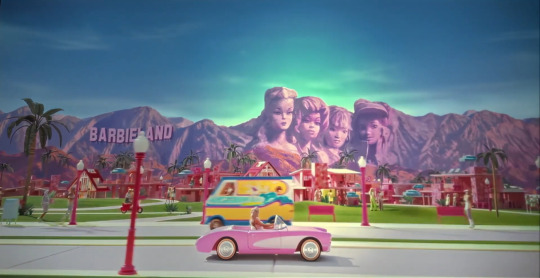
— Monte Rushmore (1927 - 1941), por Gutzon Borglum y Lincoln Borglum.
— Barbie (2023), dirigida por Greta Gerwig.
#screenshot#2023#reference#barbie#barbieland#feminism#ken#margot robbie#movie#monte rushmore#gutzon borglum#lincoln borglum#abraham lincoln#george washington#thomas jefferson#keystone#usa#mount rushmore
1 note
·
View note
Text
Thomas Jefferson had some really great quotes that are unfortunately all too true.
-"He who knows best knows how little he knows."
-"If a nation expects to be ignorant and free, in a state of civilization, it expects what never was and never will be."
-"I tremble for my country when I reflect that God is just; that His justice cannot sleep forever."
-"The man who reads nothing at all is better educated than the man who reads nothing but newspapers."
-"If we can prevent the government from wasting the labors of the people, under the pretense of taking care of them, they must become happy."
-"Truth is certainly a branch of morality and a very important one to society."
-"Experience hath shewn, that even under the best forms of government those entrusted with power have, in time, and by slow operations, perverted it into tyranny."
-"It is error alone that needs the support of the government. Truth can stand by itself."
-"Mankind is more disposed to suffer, while evils are sufferable than to right themselves by abolishing the forms to which they are accustomed."
-"Nothing gives one person so much advantage over another as to remain always cool and unruffled under all circumstances."
-"Power is not alluring to pure minds."
-"Advertisements contain the only truths to be relied on in a newspaper."
-"Every government degenerates when trusted to the rulers of the people alone. The people themselves are its only safe depositories."
-"Our country is now taking so steady a course as to show by what road it will pass to destruction, to wit: by the consolidation of power first, and then corruption, its necessary consequence."
-"No government ought to be without censors, and where the press is free no one ever will."
-"All tyranny needs to gain a foothold is for people of good conscience to remain silent."
-"When injustice becomes law, resistance becomes duty."
-"The two enemies of the people are criminals and government, so let us tie the second down with the chains of the constitution so the second will not become a legalized version of the first."
-"There is no justification for taking away individuals' freedom in the guise of public safety."
-"The beauty of the Second Amendment is that it will not be needed until they try to take it."
"If a law is unjust, a man is not only right to disobey it, he is obligated to do so."
-"A government big enough to give you everything you want, is strong enough to take everything you have."
And finally,
-"The democracy will cease to exist when you take away from those who are willing to work and give to those who would not."
Maybe we should listen to the guys who kinda founded this once great nation instead of the media? All these quotes basically sum up what's going on right now. Even though newspapers are not so important as they were then, we now have the media. And they're basically the same thing.
#thomas jefferson#mount rushmore#president#presidency#presidential#democracy#jefferson#thomas#country#america#merica#nation#quotes#wise words#wise man#wise men#promise#truth#justice#God#quote#quoteoftheday#beautiful quote#life quote#book quote#quotation#christian quotes#bible#constitution#government
1 note
·
View note